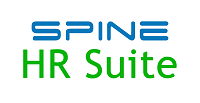Description

Leapi3

Payroo Payroll
Comprehensive Overview: Leapi3 vs Payroo Payroll
As of my last update in October 2023, I don't have specific information on "Leapi3" or "Payroo Payroll." It's possible these are new software products or services that have emerged since then, or they might be specific to certain regions or industries with limited global exposure.
However, I can provide a generalized approach on how to evaluate software products like Leapi3 and Payroo Payroll, which can be adapted to most payroll or business software products.
a) Primary Functions and Target Markets:
Primary Functions:
-
Leapi3:
- Typically, a system with a name like Leapi3 might focus on either a business intelligence platform, an integration service, or perhaps a business process automation tool, depending on what "Leapi3" signifies.
- Common functions might include workflow automation, integration of various business processes, analytics, and data management.
-
Payroo Payroll:
- As the name suggests, Payroo Payroll would be primarily focused on payroll processing.
- Key functions likely include salary computation, tax calculation, benefits management, direct deposit management, and compliance with employment laws.
Target Markets:
- Leapi3 might target medium to large enterprises looking to streamline their operations through automation and data integration.
- Payroo Payroll would target small to medium-sized businesses (SMBs) looking for efficient payroll management solutions. It might appeal to companies that need a straightforward, reliable payroll service without the complexities of larger enterprise solutions.
b) Market Share and User Base:
-
Market Share:
- If actual data was available, you'd assess market share by looking at the number of active users, penetration in specific regions, or customer bases in specific industries.
- Generally, payroll systems like Payroo often compete against well-established players like ADP, Paychex, and Gusto. Market share is typically reflected in the extent of their local versus global presence.
-
User Base:
- A user base can be measured in number count and types of organizations using the services. For example, are they mostly retail businesses, tech companies, etc.?
- It's important to compare user satisfaction and retention rates as well.
c) Key Differentiating Factors:
-
Features and Capabilities:
- Leapi3 might differentiate itself through advanced integration capabilities, custom workflows, or comprehensive data analytics tools.
- Payroo Payroll would differentiate through ease of use, specific compliance features tailored to particular regions, or customer service.
-
Pricing Model:
- Pricing can be a huge differentiator. Software-as-a-Service (SaaS) models are common, but flexibility in pricing (e.g., per employee, per month, or tiered services) can set one product apart.
-
Technology and Innovation:
- Leapi3 might stand out with cutting-edge technology solutions, enhanced AI features, or superior user interfaces.
- Payroo might excel in automating complex payroll calculations or offering mobile-driven solutions.
-
Customer Support and Service:
- Both products could differentiate themselves by offering exceptional customer support, including rapid response times, dedicated account managers, or comprehensive online resources and training.
-
Integration and Compatibility:
- The ability of these products to integrate seamlessly with existing systems, such as accounting software or CRM platforms, could position them favorably against competitors.
If you are interested specifically in these products, visiting their official websites, reading user reviews on platforms like Capterra or G2, and looking for industry reports would be beneficial for more current and detailed information.
Contact Info

Year founded :
Not Available
Not Available
Not Available
United Arab Emirates
http://www.linkedin.com/company/leapi3

Year founded :
Not Available
Not Available
Not Available
Not Available
Not Available
Feature Similarity Breakdown: Leapi3, Payroo Payroll
To provide a feature similarity breakdown for Leapi3 and Payroo Payroll, let's analyze the specific aspects you mentioned:
a) Core Features in Common
Both Leapi3 and Payroo Payroll are payroll software solutions designed to help businesses manage their payroll processes efficiently. Here are common core features typically shared between such platforms:
- Payroll Processing: Both systems automate payroll calculations, including deductions, taxes, and bonuses.
- Tax Compliance: They offer compliance with local and national tax regulations, ensuring accurate tax calculations and filings.
- Employee Self-Service: Employees can access pay slips, update personal information, and view payroll history.
- Reporting: Generates payroll reports and summaries for financial analysis and audits.
- Direct Deposit: Supports direct bank transfers for employee pay.
- Integration Capabilities: Ability to integrate with existing HR and accounting systems.
b) User Interface Comparison
While this varies with the specific versions and updates of the software, common observations about user interfaces can be made:
- Leapi3: This system is known for a more modern and user-friendly interface, often focusing on ease of use and streamlined navigation. It typically features dashboards with key metrics and shortcuts to commonly used functions.
- Payroo Payroll: Historically has had a more functional, straightforward interface that may not be as modern but is reliable and uncluttered. It focuses on simplicity and effectiveness, catering especially to those who prefer a straightforward approach without unnecessary frills.
c) Unique Features
Each of these platforms may offer unique features or distinctions that set them apart:
- Leapi3:
- AI Integration: If the platform integrates AI, it might offer predictive analytics or automatic compliance updates.
- Mobile Compatibility: Increased emphasis on mobile optimization and applications for payroll processing on the go.
- Payroo Payroll:
- Cost Efficiency: Known for being cost-effective, especially for small to medium-sized enterprises.
- UK-Focused Features: Provides specific features and compliance tools for UK businesses, which might be more tailored compared to generic solutions.
When deciding between the two, consider the specific needs of your business, such as budget constraints, the scale of operations, and any region-specific requirements. Always check for the latest updates and customer reviews to gain current insights, as software capabilities and interface designs evolve.
Features

Not Available

Not Available
Best Fit Use Cases: Leapi3, Payroo Payroll
Leapi3 and Payroo Payroll are unique solutions that cater to different business needs, making them suitable for various industry verticals and company sizes. Let's explore their best-fit use cases:
a) Leapi3
Leapi3 is typically a software platform designed to facilitate business process automation, integration, and optimization. Its use is well-suited for:
-
Small to Medium Enterprises (SMEs): Leapi3 provides the flexibility required for SMEs to automate their workflows without the need for extensive IT infrastructure. Its scalability allows businesses to start small and expand their use as needed.
-
Project-Based Organizations: Companies that manage projects with complex workflows and numerous integrations can benefit from the ability to streamline processes, ensure consistency, and enhance collaboration.
-
Industries Needing Custom Integrations: Businesses in industries like manufacturing, logistics, and professional services can leverage Leapi3's integration capabilities to connect disparate systems and ensure seamless data flow across platforms.
-
Business Optimization Projects: Leapi3 is ideal for businesses looking to optimize existing processes through automation, reducing manual task load and minimizing errors.
b) Payroo Payroll
Payroo Payroll, a payroll management solution, is optimal for:
-
Small Businesses to Medium Enterprises: Designed to handle payroll efficiently without necessitating a large HR department, Payroo offers features that help manage employee compensation, tax calculations, and compliance with various regulatory requirements.
-
Cost-Conscious Companies: Organizations seeking cost-effective payroll solutions that do not require significant investment in advanced features could find Payroo to be a valuable option.
-
Companies with Simple Payroll Needs: Businesses that have straightforward payroll needs without complex computations or extensive employee benefit management can make good use of Payroo’s straightforward and user-friendly system.
-
Startups: Startups or newer companies looking for easy-to-implement payroll solutions that are both scalable and adaptable as the company grows.
d) Industry Verticals and Company Sizes
-
Leapi3 is highly versatile and can serve a wide range of industries that rely heavily on data integration and process optimization. This makes it particularly useful across manufacturing, technology, logistics, and sectors with evolving processes. Its scalability ensures it fits both startups with growth potential and established SMEs.
-
Payroo Payroll is designed mostly for traditional service-based or retail industries where payroll processing needs are regular but not overly complex. It serves small to medium-sized companies well due to its affordability and ease of use, allowing businesses to focus on core activities without being bogged down by payroll complexities.
In summary, the choice between Leapi3 and Payroo Payroll will depend on the specific needs of a business regarding process automation and payroll management. Leapi3 excels in areas requiring customized workflow automation across various systems, while Payroo is best for straightforward payroll management in smaller to medium-sized businesses across traditional industries.
Pricing

Pricing Not Available

Pricing Not Available
Metrics History
Metrics History
Comparing undefined across companies
Conclusion & Final Verdict: Leapi3 vs Payroo Payroll
Conclusion and Final Verdict for Leapi3 and Payroo Payroll
When deciding between Leapi3 and Payroo Payroll, it's important to consider factors such as cost, features, user experience, support, and scalability. Below is a comprehensive analysis that provides a final verdict.
a) Best Overall Value
Leapi3 offers the best overall value considering its extensive features, scalability, and user-friendly interface. It is well-suited for businesses that anticipate growth and require a flexible platform that can adapt to changing needs. The investment in Leapi3 may be higher initially, but it offers superior long-term benefits through comprehensive capabilities and robust support.
b) Pros and Cons
Leapi3:
-
Pros:
- Scalability: Offers advanced features that can accommodate growth and complex payroll structures.
- User Interface: Highly intuitive and easy to navigate, which reduces the learning curve for new users.
- Features: Provides comprehensive features including integration with other HR and accounting systems.
- Customization: Offers high levels of customization to fit specific business needs.
-
Cons:
- Cost: Typically has a higher upfront cost which might be a constraint for small businesses or startups.
- Complexity: The wide array of features might be overwhelming for users who require only basic payroll functions.
Payroo Payroll:
-
Pros:
- Affordability: More budget-friendly, making it ideal for small businesses or startups with tight financial constraints.
- Simplicity: Its straightforward features and processes make it easy to set up and manage without extensive training.
- Compliance: Offers solid compliance and tax management features, ensuring regulatory standards are met.
-
Cons:
- Limited Features: Basic functionalities might not meet the needs of larger businesses or those requiring advanced features.
- Scalability: Not as scalable or customizable as Leapi3, which could be an issue for rapidly growing businesses.
- Support: Some users report limited support options compared to more premium competitors.
c) Recommendations for Users
-
Small Businesses/Startups: If you are a small business or a startup with limited resources and simple payroll needs, Payroo Payroll is recommended due to its affordability and straightforward use.
-
Growing Businesses: For businesses anticipating growth or those requiring advanced features, Leapi3 is the better choice. Its extensive capabilities and ability to integrate with other systems can scale with your business, making it a future-proof investment.
-
Cost vs. Features Analysis: Users should perform a cost vs. feature analysis to ensure that they are not paying for unnecessary features, especially if the budget is a concern. Leapi3 offers advanced functionalities, and it's important to evaluate whether these align with specific business needs.
-
Trials and Demos: Both platforms offer trial periods or demos. Take advantage of these to assess the usability and fit for your business environment before making a decision.
In summary, Leapi3 is ideal for businesses seeking a comprehensive and scalable payroll solution, while Payroo Payroll is suited for those prioritizing cost-efficiency and simplicity. Consider your long-term business strategy and specific payroll needs when making your decision.
Add to compare
Add similar companies



